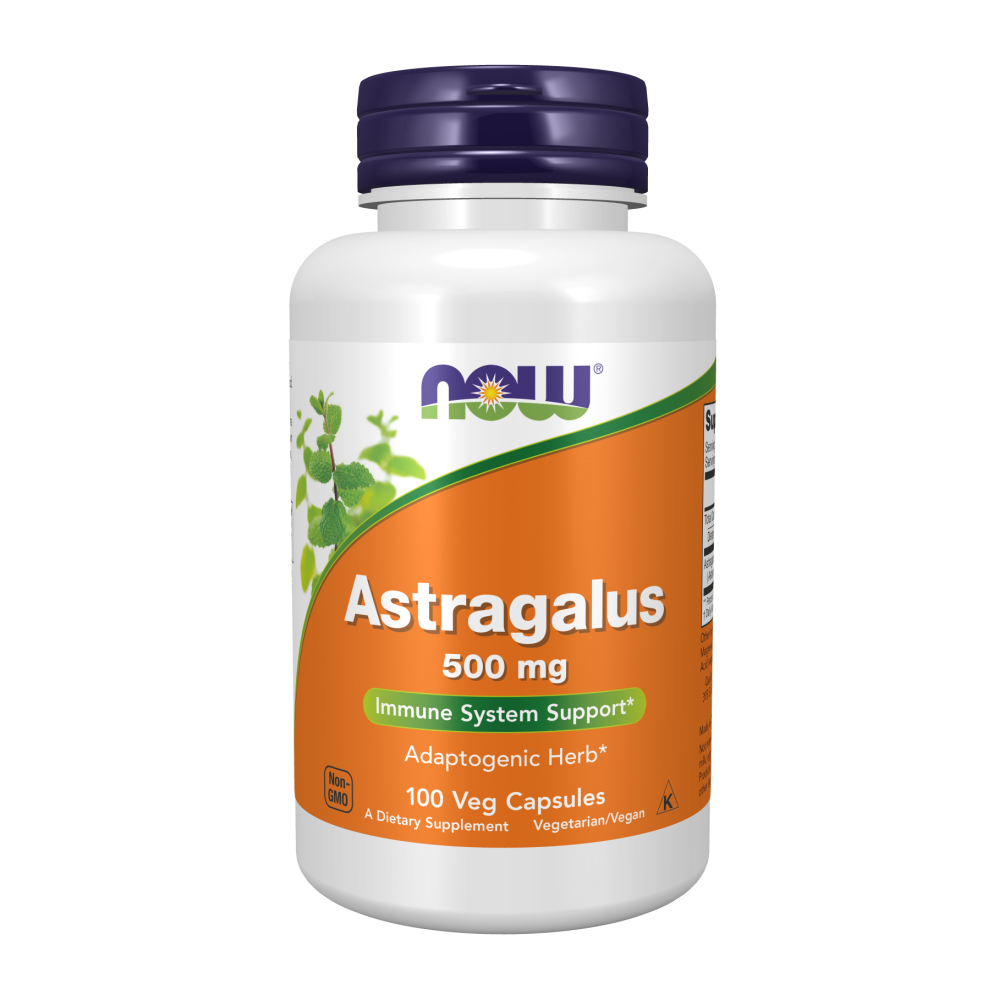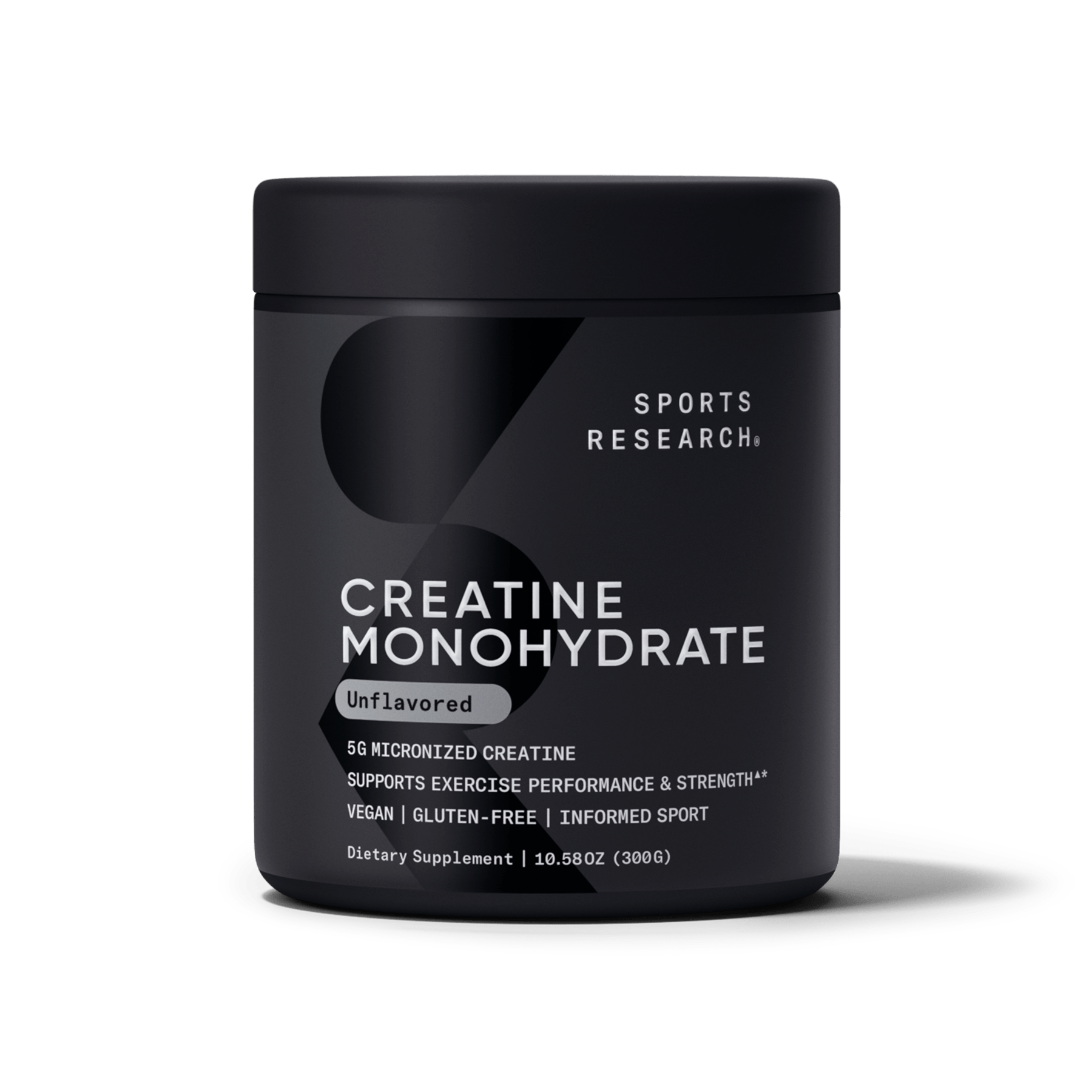
Key Takeaways:
- The gut and brain are closely connected. Stress can make an impact on digestive health and can trigger a number of different concerns.
- You can support both gut health and stress management by eating well, exercising, and taking quality supplements.
The gut and brain have such a special connection that some people refer to the digestive system as the “second brain.”
This connection, referred to as the gut-brain axis, means that when you experience stress, it can actually have an indirect effect on your digestive system and gut health.
But how does it work? And how can you support both gut health and stress support?
Keep reading to find out.
The gut-brain connection
If you’ve ever felt nauseous before a presentation, you’ve experienced the connection between the gut and brain. There are three main things responsible for the relationship between the gut and brain: the vagus nerve, neurotransmitters, and gut microbes.
The main connection between the brain and the gut is the vagus nerve, which sends signals in both directions.1
Your gut and brain are also connected through chemicals called neurotransmitters. Neurotransmitters produce brain control feelings and emotions, such as serotonin. In fact, 90% of serotonin (the happiness hormone) is produced in the gut.2 Your gut microbes also produce a neurotransmitter called gamma-aminobutyric acid (GABA), which is important for nervous system function for its calming and relaxing effects.3
The next thing that influences the gut-brain connection is the microbiome. Each person has a unique network of microbiota that is determined by their DNA and the environment around them. The gut microbiome plays a role in digestion, absorption of nutrients, and even the body’s immune system. It also produces neurochemicals that the brain uses to regulate basic physiological processes — such as hunger — as well as mental processes.
How stress affects gut health & digestion
One of the most interesting things about the gut-brain axis is how stress can affect the gastrointestinal system. Here’s how it works:
The autonomic nervous system is a complex network of nerves that extends from the brain to all the major organs of the body. It has two major divisions: the sympathetic and the parasympathetic nervous systems. The sympathetic nervous system triggers the “fight or flight” response, and the parasympathetic nervous system calms the body down after the danger has passed. Both systems interact with another, less well-known component of the autonomic nervous system — the enteric nervous system, which (and this is important) helps regulate digestion.
The enteric nervous system is embedded in the lining of the gastrointestinal system, and is sometimes referred to as the “second brain” because it relies on the same types of neurons and neurotransmitters that are found in the brain and spinal cord.
When you experience stress, your brain can go into fight or flight mode, enabling you to either fight the perceived threat or flee the situation (even though you’re probably not being attacked by a bear, and more likely you are stressed over something that does not require actual fight or flight, like a work presentation or relationship drama). During this response, digestion slows or even stops so that the body can focus on facing the perceived threat.4
There’s more; stress may also trigger bloating and other occasional gut discomforts to be felt more easily, and can even influence which nutrients the body absorbs.
For these reasons, managing stress isn’t only important for your mental well-being but also for gastrointestinal health.
How to support gut health
Include lots of gut-healthy foods in your diet
A healthy gut microbiome is essential to the gut-brain connection. Ultra-processed foods, such as soda, packaged snack foods, fish or chicken nuggets, and instant noodle soups, can negatively affect your gut environment.
Instead, focus on creating a balanced diet with a variety of proteins, carbohydrates, healthy fats, fruits and vegetables. Include more whole foods in your diet and less processed foods that have been shown to cause inflammation.5 Make sure you’re eating adequate fiber, reducing the amount of sugar you consume, and eating a balance of seafood and lean poultry rather than red meat.
Prebiotics are also essential for gut health. There are many fruits and vegetables that are rich in prebiotics, including bananas, onions, garlic, berries, asparagus, and more.6 Prebiotics are a type of fermentable dietary fiber, and act as food for probiotics.
Probiotics are living microorganisms that, when ingested, can help support digestive or gut health. You can get probiotics from supplements or from foods that have been prepared with bacterial fermentation. Examples of probiotic foods include yogurt, kefir, sauerkraut, tempeh, and kimchi.
Take a probiotic or other gut health supplement
If you’re not getting enough probiotics from your diet, try taking a probiotic supplement.
Solgar® Probi® 20 Billion and Solgar® Probi® 30 Billion use a patented, clinically-studied strain of Lactobacillus plantarum 299v that has been researched for over ten years. These supplements help alleviate occasional gas, bloating, abdominal discomfort and help deliver good bacteria to your gut.* Solgar® Probi® 30 Billion is also suitable for women of child-bearing age to help improve iron absorption.*
There are other supplements that can support digestion as well, such as digestive enzymes.
Solgar® Comfort Zone Digestive Complex
This quality digestive enzyme offers 11 plant and fermentation-based enzymes and helps encourage more efficient and thorough digestion.* Each serving helps support the body’s natural digestive process so that you can stop avoiding your favorite foods and start eating what you enjoy.
Psyllium provides fiber from the husks of Plantago ovata plant’s seeds. Solgar® Psyllium Husk Fiber is a premium supplement and is non-GMO, vegan, gluten-free, dairy-free, kosher, and halal.
How to manage stress
Focus on getting adequate sleep
When stressed, sleep is often the first thing to go. However, getting at least 8-10 hours of sleep each night can help you better cope with the effects of stress. If you struggle to get enough sleep or experience occasional sleeplessness, try Solgar® Triple Action Sleep, a unique blend of L-theanine, time-release melatonin, and nighttime herbs. Or, explore our extensive list of sleep-promoting supplements.*
Exercise regularly
Exercise releases positive endorphins in your brain, allowing you to better cope with the stress in your life. Aim to get at least 150 minutes of moderate exercise each week (roughly 30 minutes a day).7
Talk to someone you trust
Verbally processing your emotions is a great way to relieve stress. Find a trusted family member, friend, or professional to help you work through your issues. Journaling can also be a great way to process what you’re feeling.
Take a stress support supplement
Solgar® Stress & Anxiety Relief
Solgar® Stress & Anxiety Relief is a unique supplement specifically formulated to help your body better manage the disruptive symptoms of occasional emotional stress.* It does so by combining two powerful, clinically-studied ingredients KSM-66® Ashwagandha and affron® Saffron.
KSM-66® Ashwagandha is the most clinically-studied form of ashwagandha – a traditional, adaptogenic herb shown to help relieve occasional stress and anxiety.* affron® Saffron is a spice derived from the flower of Crocus sativus, to help maintain a positive mood and support emotional well-being.*
Solgar® Daily Stress Support is a 100% drug-free and non-habit-forming way to support your ability to deal with occasional mental and physical stress.* Each serving:
- Builds your body’s resistance to stress*
- Aids in your ability to deal with mental and physical stress*
- Helps provide relief from occasional stress-related mental fatigue*
- Supports your ability to stay calm*
- Supports energy metabolism and nervous system health*
And, it’s non-GMO, vegan, gluten-free, and dairy-free!
Solgar® B-Complex “100” contains all the B-vitamins your body needs to turn carbohydrates, proteins, and fats into cellular energy.* Each serving provides support for occasional stress of daily living and nervous system health.*





